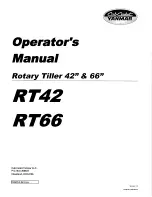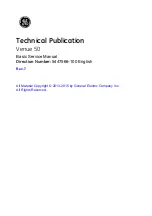
venTest OPERATORS MANUAL
3
Consequences of Physical Characteristics Of a Gas
•
A gas does not have a fixed volume but takes up the volume that is defined by pressure
and temperature.
•
Volume values for gases must always be named with temperature and pressure
indications.
•
There are different standard conditions to which volume indications are converted. You will
always have to check which one of said standard conditions has been applied.
3.1
Standard Conditions
Volume is often stated as standard volume. This means that the respective volume is the result of
measuring having been done at both a standard temperature and a standard pressure.
Unfortunately there is a great variety of standard conditions with different standard temperatures
and pressures:
DIN 1343
Tn = 0°C and Pn =
1013 mbar
(= 1 atm, physical
Atmosphere)
DIN 02
(ISO 1-1975)
Tn = 20°C and Pn =
981 mbar
(= 1 at, tech. Atmosphere)
STPD
Tn = 21.1 °C (=70°F) and
Pn = 1013 mbar
(= 760 mmHg)
It is important to check to which standard condition the value is referring to.
The volume can also be shown in ATP (geometric volume). This is the volume that the gas takes
up at both present pressure and temperature.
For measuring devices it is important to verify to which standard condition the information is
presented.
If the standard condition indication is missing for the measuring device, you can normally consider
that the geometric volume is shown.
Appendix A
#
Page 84
Summary of Contents for venTest
Page 1: ...Operating Manual venTest Ventilator Tester MN 108 ...
Page 2: ......
Page 4: ......
Page 8: ...Page iv ...
Page 32: ...venTest OPERATORS MANUAL Overview Chapter 2 Page 18 ...
Page 116: ...venTest OPERATORS MANUAL Appendix C Page 102 ...
Page 117: ......
















































